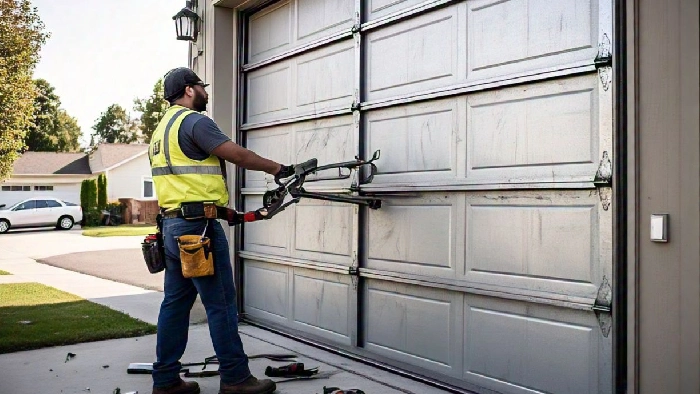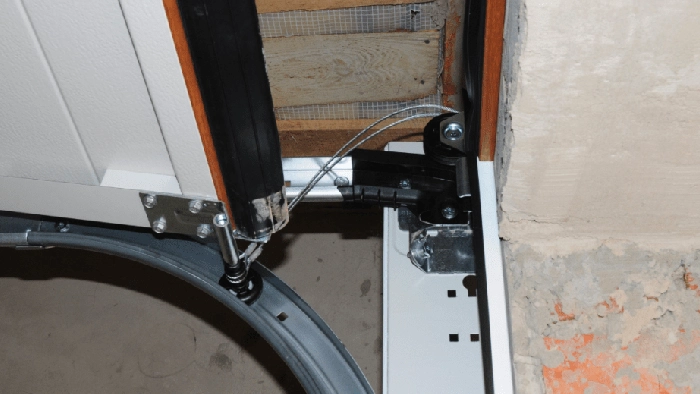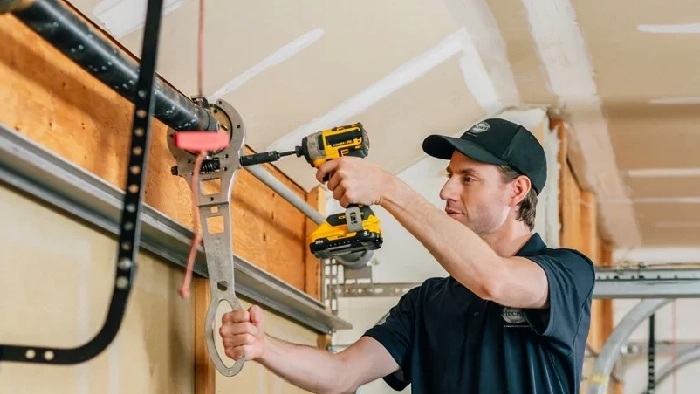
Budgeting for a New Garage Door: What You Need to Know
Introduction
When it comes to home improvements, one often overlooked area is the garage door. Your garage door not only contributes to your home's curb appeal but also plays a crucial role in security and functionality. Given its importance, budgeting for a new garage door can feel overwhelming. This comprehensive guide will walk you through everything you need to know about budgeting for a new garage door, including types of doors, installation costs, and why hiring professional garage door services is essential.
Understanding Garage Doors: Types and Features
Types of Garage Doors
Before diving into budgeting specifics, it's vital to understand that various types of garage doors are available. Choosing the right type will significantly influence your budget.
1. Sectional Garage Doors
Sectional doors are made up of several panels that are hinged together. They open vertically and slide along tracks. This style is popular due to its durability and versatility.
2. Roller Garage Doors
These doors roll up into a coil above the opening when opened. They're ideal for homes with limited space.
3. Side-Hinged Garage Doors
These swing open like traditional doors and consist of two panels. They require more space outside the garage but are often favored for their classic look.
4. Up-and-Over Garage Doors
As the name suggests, these doors either tilt up or swing outwards when opened. They can be less convenient in tight spaces but offer excellent security features.

Materials Matter: Choosing the Right Material
The material used for your garage door significantly affects both aesthetics and cost.

- Steel: Known for durability and low maintenance.
- Wood: Offers a classic look but requires regular upkeep.
- Aluminum: Lightweight and resistant to rust but less sturdy than steel.
- Fiberglass: An excellent option that mimics wood without the maintenance concerns.
Budgeting for a New Garage Door: What You Need to Know About Costs
Initial Costs Breakdown
When budgeting for a new garage door, you'll want to consider several factors:
Average Cost Estimates
| Type | Cost Range | |---------------------|----------------------| | Sectional | $800 - $3,500 | | Roller | $600 - $2,500 | | Side-Hinged | $1,000 - $2,000 | | Up-and-Over | $700 - $2,500 |
It’s essential to get multiple quotes from different providers when considering installation services.
Hidden Costs When Installing a New Garage Door
When budgeting for a new garage door, don’t forget about potential hidden costs:
1. Permit Fees
Many municipalities require permits for installing a new garage door which could add unexpected expenses.
2. Structural Modifications
If the existing frame is damaged or needs reinforcement, this could escalate costs significantly.
3. Disposal Fees
Removing an old garage door often incurs additional disposal fees if not handled by your service provider.
Finding Reliable Garage Door Services Near You
Finding trustworthy professionals is critical when it comes to installing your new garage door.
Search Locally
Use search terms like "best garage door repair services near me" or "garage door services Los Angeles" to find reputable providers https://expressgaragedoorsca.com/ https://expressgaragedoorsca.com/contact-us/ https://expressgaragedoorsca.com/about-us/ garage door services Los Angeles in your area.
Read Reviews
Online reviews can provide insights into customer experiences with specific companies offering "garage door services."
Ask About Experience
Inquire about how long they've been in business and what types of doors they've installed previously.
Professional Garage Door Services vs DIY Installation
While some may consider installing their own garage doors as a cost-saving measure, hiring professional garage door services has its advantages:
Benefits of Hiring Professionals
- Expertise ensures proper installation.
- They offer warranties on their work.
- Professionals can handle unforeseen complications effectively.
DIY Considerations
If you're handy and have experience with similar projects, DIY might save money upfront—but ensure you’re prepared for potential headaches down the line.
The Importance of Maintenance: Keeping Your Garage Door Functional
Once you've got that shiny new garage door installed, keeping it maintained is crucial for longevity:
Regular Inspections
Checking springs and rollers regularly can prevent larger issues from developing later on.
Lubrication
Regularly lubricating moving parts keeps everything running smoothly—something you’ll definitely want after investing in your new setup!
FAQs About Budgeting for a New Garage Door
1. How much should I budget for a new garage door?
Budgeting typically ranges from $800 to over $3,500 depending on materials and features chosen.
2. Are there financing options available?
Many companies offer financing plans; check with local contractors or explore third-party options as well.
3. How long does installation take?
Most installations can be completed within one day; however, this varies based on complexity and any necessary modifications.

4. What if my old opener doesn’t work with the new door?
You may need to consider professional garage door opener repairs or purchasing an upgraded model compatible with your new setup.
5. Do I need permits for installation?
Yes! Always check local regulations—failure to do so could lead to fines down the road!
6. Can I install my own smart opener?
Absolutely! Just ensure compatibility with both your existing system and Wi-Fi network before proceeding with any DIY installations!
Conclusion
Budgeting for a new garage door doesn't have to be an intimidating task if you approach it systematically. From understanding various types of doors and materials available to recognizing potential hidden costs associated with installation—being informed will empower you during this process! Whether you're seeking commercial garage door services or planning DIY installations at home in Los Angeles or beyond—the knowledge gained here prepares you better than ever before! Don't forget that ensuring quality through professional help can save time—and ultimately money—in maintaining your investment over time!